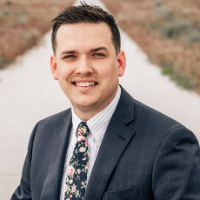Grant County, WA White Collar Crime Lawyers
Sponsored Law Firm
-
 x
x

Click For More Info:
-
The Law Offices of Richard L. Cooper, P.A.
848 Brickell Avenue Suite 800 Miami, FL 33131» view mapDWI/DUI, Drug Trafficking, Felony Nationally Ranked Top 40 Under 40
With Richard L. Cooper you can expect a trusted confidant who will work diligently to fully understand your case and determine a road map to help you regain control of your life.
800-756-2781
Not enough matches for Grant White Collar Crime lawyer.
Below are all Grant lawyers.
Michael Glen Earl
✓ VERIFIEDAccident & Injury
Michael Glen Earl was raised in Moses Lake, Washington and loves the Columbia Basin. He is a third generation attorney and is fluent in Spanish. Profe... (more)
FREE CONSULTATION
CONTACTBryce Patrick McPartland
Litigation, Workers' Compensation, Personal Injury, Accident & Injury
Status: In Good Standing
FREE CONSULTATION
CONTACTFREE CONSULTATION
CONTACTFREE CONSULTATION
CONTACTKathleen G. Kilcullen
Personal Injury, Social Security -- Disability, Workers' Compensation
Status: Suspended Licensed: 38 Years
David L. Lybbert
Government, Employment, Accident & Injury, Insurance
Status: In Good Standing Licensed: 38 Years
Bryce Patrick Mcpartland
Workers' Compensation, Employment Discrimination, Civil Rights, Personal Injury
Status: In Good Standing
Bryce Patrick Mcpartland
Workers' Compensation, Employment Discrimination, Civil Rights, Personal Injury
Status: In Good Standing

 Richard L. Cooper Miami, FL
Richard L. Cooper Miami, FL AboutMiami Attorney at Law
AboutMiami Attorney at Law ServicesCriminal Defense
ServicesCriminal Defense

